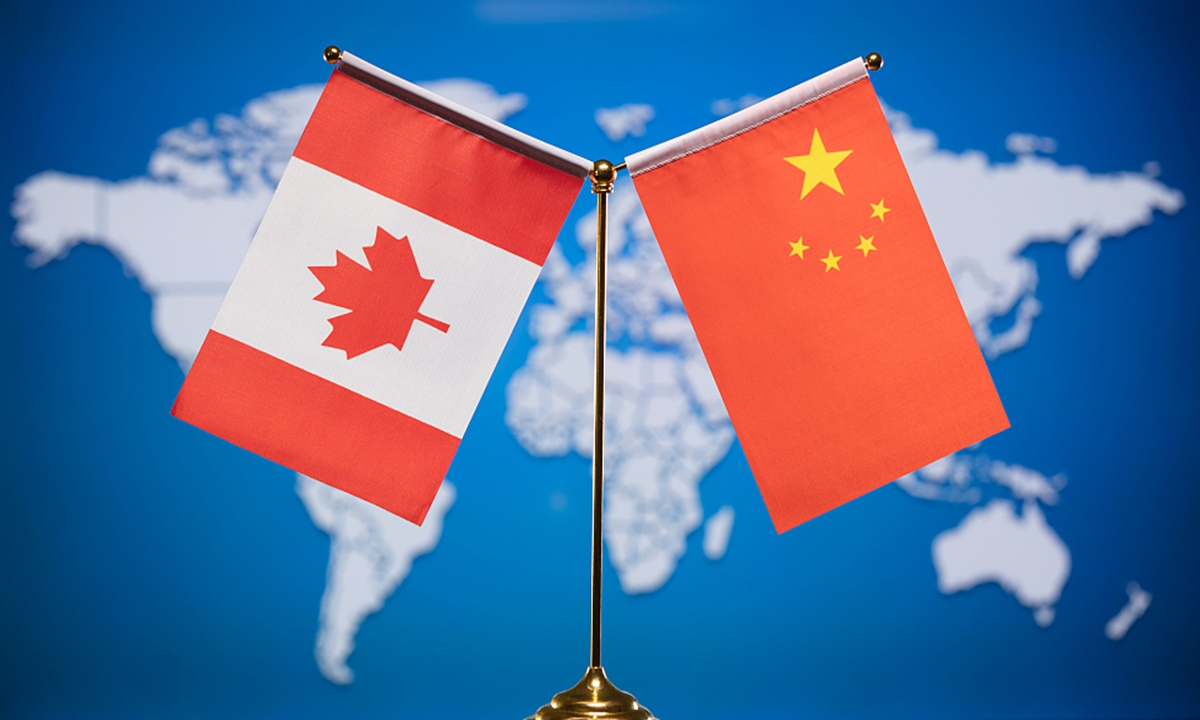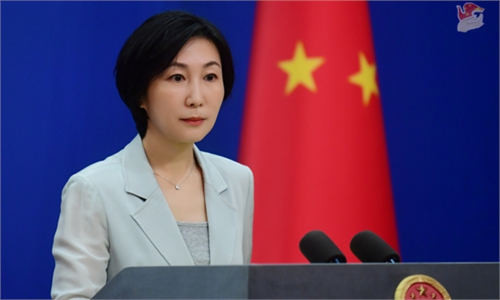
Photo: VCG
It is hoped that the Canadian government can treat Chinese firms fairly, Chinese Vice Minister of Commerce Wang Shouwen said on Thursday, noting that though some misunderstandings remain, Canada and China have "extensive common interests, and common grounds are far greater than disagreements."
The comments were made at an event held by the Canada China Business Council in Beijing on Thursday.
"The economic and trade cooperation between China and Canada has a solid foundation," Wang said, noting that though the epidemic has had a negative impact on the global economy in the past three years, cooperation between China and Canada has maintained a momentum of growth and has shown strong resilience.
The trade volume between China and Canada reached $96.1 billion in 2022, up by 17.3 percent year-on-year and setting a new record. China's imports from Canada reached $42.4 billion, a 50 percent jump compared with the pre-epidemic level. Data from Canada showed that Canada's average trade growth with other countries is only 8.9 percent, but its trade growth with China has reached 10 percent, according to Wang.
Wang said that China imports many products from Canada, including 96 percent of China's rapeseed, one third of the potash fertilizer imports, and 20 percent of the gold jewelry imports. In the future the space for trade and investment cooperation between two countries will be even broader, he said.
"Nevertheless, we do not deny that there are still some areas of mutual incomprehension or even dissatisfaction between our two countries," Wang said.
For instance, because of bird flu, Canadian poultry exports to China have encountered difficulties, and due to the epidemic, Canadian meat companies have encountered some challenges in terms of qualifications when exporting to China. "But what I want to say is that these problems are all simple technical problems - some have been solved, and some will be solved," Wang said.
"I believe these kinds of problems are short term, and will get solved in the end. As long as Canadian companies take relevant improvement measures to ensure the quality and safety of their products, the vast Chinese market is completely open to Canadian products," Wang said.
Just as Canada has concerns about China, Chinese companies also have complaints about some practices of the Canadian government, Wang pointed out.
For example, the Canadian government excluded Huawei and ZTE from the Canadian telecommunications market, citing so-called national security concerns. Last year, Canada also asked three Chinese-backed companies to withdraw their investment in Canadian minerals. Many Chinese companies have also reported that Canada treats Chinese companies differently, the official said.
This has hurt their confidence in investing in Canada, Wang said, adding that it is hoped that the Canadian government can treat Chinese firms fairly.
"Although we may have some misunderstandings and dissatisfactions, what I want to emphasize is that Canada and China have extensive common interests, and our common ground is far greater than disagreements. Both Canada and China firmly support free trade. We oppose unilateralism, bullying and protectionism," Wang said.
"In terms of trade, we all suffered from the experience of being bullied by the same country. We all support the WTO… we all hope to have a fair and impartial third-party dispute resolution institution, which means that when we have differences, we resolve our differences in a fair and reasonable way, rather than through unilateral sanctions," said the official.


